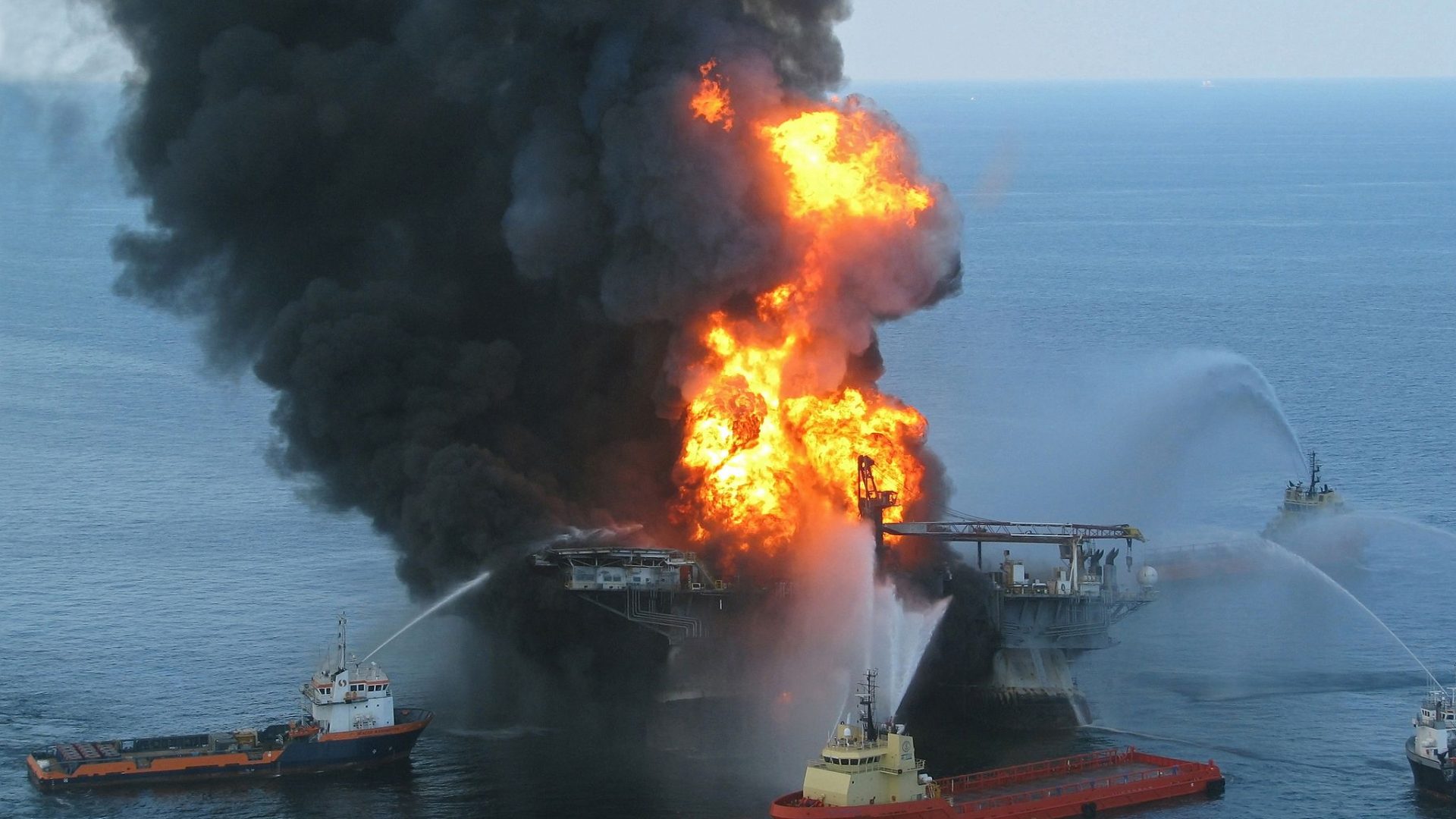
BP
Our analysis reveals how BP’s climate plans fail to align with international commitments to phase out fossil fuels and to limit global temperature rise to 1.5ºC.
How does BP stack up?
Table Key
- Grossly insufficient
- Insufficient
- Partially aligned
- Close to aligned
- Fully aligned
Ambition: Drilling for More Oil and Gas
BP does not have a date set to stop exploration, stop approving new extraction projects, or end oil and gas production. BP has not set a rapidly declining fossil fuel production target, and therefore its plans are dangerously out of step with climate goals.
Despite the reality of the climate crisis, BP recently scaled back a target to reduce production to 2030 and expressly plans to increase production in 2024 and keep it flat to 2025. BP plans to add around 200 million barrels per day of oil and gas production from “ten new major projects by 2025.”
It’s unthinkable to approve any new fossil fuel development when the majority of oil, gas, and coal in existing fields and mines must stay underground to keep warming to globally agreed limits.
Historical Responsibility
-
3 rd
BP's Rank
for most cumulative climate pollution in history among ALL investor-owned companies.
Source: Carbon Majors
-
42.5 billion
Tonnes of CO2e Pollution
linked to BP’s fossil fuel production since the early 1900s.
Source: Carbon Majors
-
$ 1 trillion
Amount BP Would Owe
if the company were held partially accountable for the climate loss and damages caused by its pollution since 1985 alone.
Source: Climate Analytics
BP CEO Bernard Looney in 2023 (now former CEO)“We’re going to drill more. We’re adding to rigs in the Gulf of Mexico. We’re going to add 100,000 barrels a day of production in the Permian Basin between now and 2025. We’re going to double production in our onshore business between now and 2030.”
Integrity: Failing Climate Targets
Do BP’s actions add up to a credible pathway to 1.5°C?
BP has not set comprehensive targets to ensure its total emissions decline rapidly and consistently.
BP emissions reduction pledges fall short of what is needed to align with 1.5°C. BP has no interim targets in the years between 2030 and 2050 requiring absolute reductions in its oil and gas production, sales, or emissions.
To meet its climate targets, BP plans to rely on the ‘net’ in ‘net zero’ by investing in carbon capture, which may prolong the life of fossil fuels, has a long track record of failure, and perpetuates injustice. Instead, oil and gas companies should take responsibility for reducing their oil and gas extraction and sales as rapidly as possible.
Meanwhile, there is evidence that BP is lobbying against climate action, greenwashing, and otherwise maneuvering to undermine the energy transition.
At a glance
-
2004
Year BP began pushing the term ‘carbon footprint'
BP is credited with coining the term ‘carbon footprint’ implying that individuals rather than Big Oil and Gas were responsible for the climate crisis.
Source: The Guardian
-
16
Industry associations lobbying against climate action
BP is a member of 16 industry associations that are “Misaligned” on climate policy as of May 2024.
Source: InfluenceMap
People-Centered Transitions: Inadequately Preparing
While many companies have co-opted the language of ‘just transition’ from labor and climate justice movements in recent years, BP rates “Insufficient” on its real-world just transition plans and on upholding human rights.
BP claims to support “the International Labour Organization Guidelines on Just Transition and [to] believe that respect for human rights and strong environmental and social performance are necessary for a just transition.”
However, the company’s policies and practices appear to fall short of what is needed to make this a reality. For example, though BP claims to support multipartite dialogue with workers, there is little explicit evidence of this having occurred on any significant scale.

Toxic emissions linked to child’s death:
An Iraqi man, Hussein Julood, has launched U.K. legal proceedings against BP, alleging that the company was partly to blame for his son’s 2023 death. His son, Ali Hussein, suffered leukemia after growing up near the Rumaila oil field – where BP was the lead contractor – and Julood says that “toxic emissions” from methane gas flaring caused his son’s cancer.
Urge the British Museum to ditch BP!
2023 was the hottest year on record – but the British Museum has agreed to a new 10-year sponsorship deal with BP. Will you join the call for the British Museum to reverse this indefensible decision?

